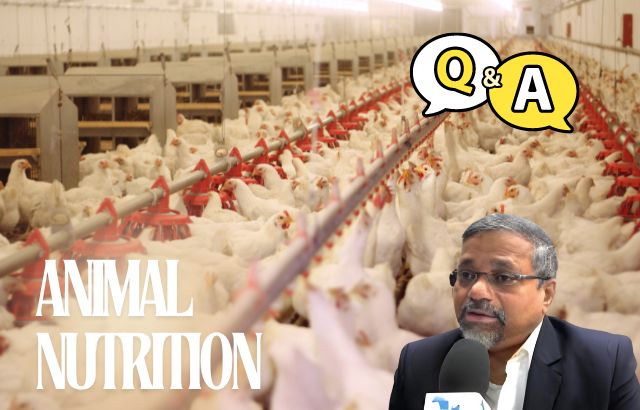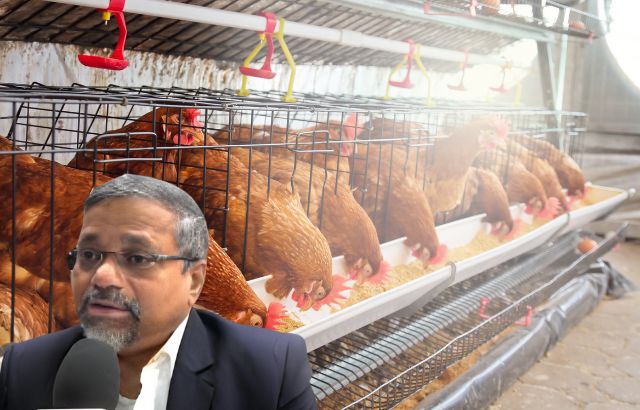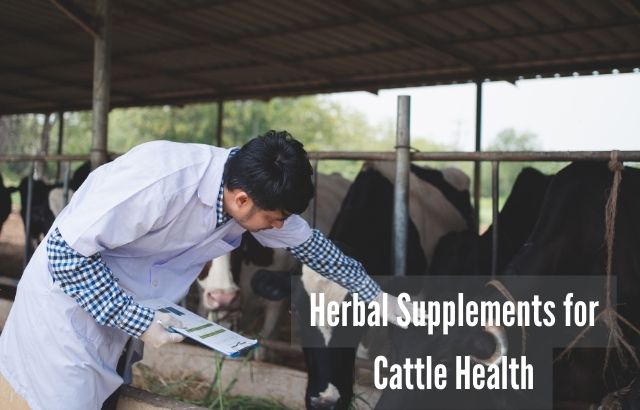Probiotics in Poultry Gut Health- Imagine a bustling poultry farm where thousands of chickens roam freely, pecking at grains and enjoying the sunshine. Behind the scenes, however, lies a complex ecosystem crucial to their well-being: the gut microbiota. This invisible world of bacteria and microorganisms plays a pivotal role in the health and productivity of every bird. At the forefront of maintaining this delicate balance are probiotics – beneficial bacteria that have revolutionized poultry farming.
In recent years, the use of probiotics in poultry has garnered attention not just for their potential to improve digestion and nutrient absorption, but also for their profound impact on disease prevention. As we delve into the world of poultry gut health, let’s explore how probiotics contribute to maintaining a healthy gut microbiota and their role in safeguarding poultry from diseases.
Probiotics are live microorganisms that, when administered in adequate amounts, confer health benefits to the host. In poultry farming, probiotics are primarily used to enhance gut health by promoting a balanced intestinal microbiota. This balance is crucial because a healthy gut microbiota helps strengthen the bird’s immune system, improve nutrient utilization, and reduce the colonization of harmful pathogens.
How Probiotics Benefit Poultry Gut Health
- Enhanced Digestive Health: Probiotics aid in breaking down feed components, facilitating better digestion and absorption of nutrients like proteins and fats.
- Competitive Exclusion: Certain probiotic strains competitively exclude pathogenic bacteria such as Salmonella, E. coli, and Campylobacter from binding to intestinal cells, reducing the risk of infections.
- Immune Modulation: They stimulate the immune system, enhancing the bird’s ability to respond effectively to infections and stressors.
Stats and Data Supporting Probiotic Use
- According to a study by Dhanasekaran et al. (2020), chickens supplemented with probiotics showed a significant reduction in the prevalence of Salmonella by up to 70% compared to controls.
- Research published in the Journal of Applied Poultry Research found that probiotic-fed broilers exhibited improved weight gain and feed conversion ratios, indicating better overall health and performance.
Case Study: Probiotics in Commercial Poultry Farms
In a commercial setting, large-scale poultry operations have implemented probiotic regimes to mitigate the use of antibiotics and enhance sustainability. For instance, a farm in the Midwest reported a 30% decrease in antibiotic usage after incorporating probiotics into their feeding regimen. This reduction not only aligns with antibiotic stewardship goals but also contributes to safer poultry products for consumers.
Probiotics in Poultry Gut Health – Ask Jaiguru- Frequently Asked Questions

What are probiotics and how do they benefit poultry?
Answer: Probiotics are beneficial live microorganisms that improve poultry gut health by promoting a balanced microbiota, enhancing digestion, and boosting immunity.
How do probiotics contribute to disease prevention in poultry?
Answer: Probiotics contribute to disease prevention by competitively excluding harmful pathogens, enhancing immune responses, and improving overall gut health in poultry.
Are there studies supporting the use of probiotics in poultry farming?
Answer: Yes, studies have shown that probiotics can significantly reduce the prevalence of pathogens like Salmonella and improve growth performance in poultry, making them a valuable tool in modern farming practices.
Probiotics in Poultry Gut Health – Some commonly used probiotics in poultry gut health:
- Lactobacillus spp.: Various species of Lactobacillus, such as L. acidophilus, L. casei, L. plantarum, are commonly used in poultry feed to promote gut health and enhance nutrient absorption.
- Bacillus spp.: Bacillus subtilis and Bacillus licheniformis are spore-forming bacteria known for their ability to improve digestion, compete against pathogens, and stimulate the immune system in poultry.
- Enterococcus spp.: Certain strains of Enterococcus, like Enterococcus faecium and Enterococcus faecalis, contribute to gut health by enhancing nutrient utilization and inhibiting pathogenic bacteria.
- Bifidobacterium spp.: Bifidobacteria are beneficial bacteria that help maintain a balanced gut microbiota and support immune function in poultry.
- Saccharomyces cerevisiae: This yeast species is often used as a probiotic in poultry to improve digestion, nutrient absorption, and overall gut health.
- Streptococcus spp.: Some strains of Streptococcus, such as Streptococcus thermophilus, have been studied for their potential benefits in poultry gut health, including pathogen inhibition.
- Pediococcus spp.: Pediococcus acidilactici is used in poultry farming to promote gut health and improve feed efficiency.
- Propionibacterium spp.: Propionibacterium freudenreichii is known for its probiotic properties, including modulation of gut microbiota and enhancement of immune responses in poultry.
These probiotics are typically administered through feed or water to improve gut microbiota diversity, enhance digestion, and support overall health and performance in poultry.
Interesting statistics

Probiotics are widely used in poultry to promote gut health, improve digestion, and boost immunity. Here are some interesting statistics and facts related to the use of probiotics in poultry gut health:
1. Market Growth
- Global Probiotic Market: The global poultry probiotics market is expected to grow at a CAGR (Compound Annual Growth Rate) of 7.5% from 2021 to 2028, reflecting an increasing awareness of their benefits in maintaining poultry health.
- Probiotic Sales in Animal Feed: Probiotics account for 25-30% of the animal feed additives market, with a significant share coming from poultry farming.
2. Improvement in Gut Health
- Studies show that the use of probiotics can enhance the gut microbial diversity in poultry. One such study found that adding Lactobacillus strains to chicken feed improved the gut flora, leading to a 20-30% reduction in pathogenic bacteria like Salmonella and Escherichia coli.
- Probiotics like Bacillus subtilis have been shown to increase intestinal villus height by 15-20%, which helps in better nutrient absorption and overall health.
3. Enhanced Feed Efficiency
- Probiotics can improve feed conversion ratios (FCR) by 5-10% in broilers, meaning that poultry can gain more weight with less feed. This efficiency not only cuts down costs but also improves the overall sustainability of poultry farming.
4. Boosting Immunity
- The introduction of probiotics in poultry has been shown to increase immunoglobulin levels (especially IgA and IgG), which are essential for immune defense. In one study, the use of Lactobacillus acidophilus led to a 30% improvement in immune response in broilers.
5. Reduction in Antibiotic Use
- With the increasing focus on reducing antibiotics in animal agriculture, probiotics have emerged as a natural alternative. Using probiotics can reduce the reliance on antibiotics by up to 50%, with many poultry farmers replacing antibiotics with probiotic feed additives for improved health outcomes.
6. Commonly Used Probiotics
- Lactobacillus species (e.g., L. acidophilus, L. rhamnosus) are often used in poultry to enhance gut health, regulate intestinal pH, and outcompete harmful bacteria.
- Bifidobacterium species can help in digestion and suppress harmful bacteria in the intestines.
- Bacillus subtilis is a spore-forming bacterium that can survive harsh conditions and has shown promise in controlling gut pathogens while improving growth rates and feed conversion.
- Enterococcus faecium has been demonstrated to help balance gut flora and reduce the risk of intestinal infections, especially in young chicks.
7. Probiotic Effects on Meat and Egg Quality
- Broilers fed with probiotics have shown 12-15% improvement in meat quality, with enhanced texture, flavor, and lower fat content.
- In laying hens, probiotics have been found to increase egg production by 5-10% and improve egg quality by reducing the incidence of shell breakage and enhancing yolk quality.
8. Cost-Effectiveness
- Probiotics typically cost around $0.10 to $0.25 per bird per cycle, depending on the strain and concentration. While the initial cost is an investment, it can lead to an overall improvement in profitability through increased growth rates, improved immunity, and reduced veterinary costs.
9. Reduction in Mortality
- Probiotic supplementation has been associated with 20-25% reduction in mortality rates in broilers, especially in the early stages of growth when the birds are more susceptible to disease.
10. Broiler Performance
- Broilers treated with probiotics have shown 5-12% higher average daily weight gain (ADG), which can contribute to faster growth and earlier market readiness.
These statistics highlight the growing importance of probiotics in modern poultry farming, where improving gut health, reducing reliance on antibiotics, and increasing productivity are key considerations.
Conclusion

In conclusion, probiotics play a pivotal role in maintaining poultry gut health by promoting a balanced microbiota and enhancing disease resistance. As evidenced by numerous studies and practical applications in commercial farms, these beneficial microorganisms offer a sustainable and effective alternative to traditional disease management practices. By harnessing the power of probiotics, poultry farmers can optimize health outcomes while meeting the demands for safer and more sustainable food production.












